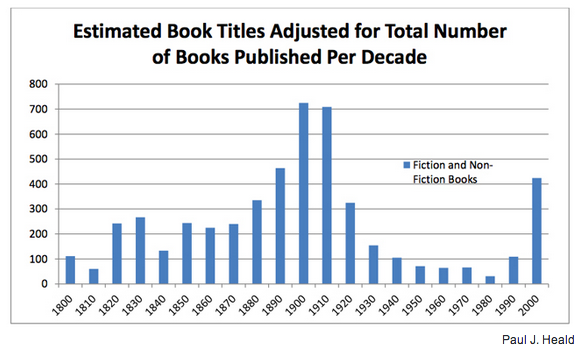The Atlantic has a fascinating article about the adverse effects of copyright on the availability of written works from the middle of the last century.
By this calculation, the effect of copyright appears extreme. Heald says that the WorldCat research showed, for example, that there were eight times as many books published in the 1980s as in the 1880s, but there are roughly as many titles available on Amazon for the two decades. A book published during the presidency of Chester A. Arthur has a greater chance of being in print today than one published during the time of Reagan.

Mid-Century Copyright Gap
The article is sourced from a paper by Paul J. Heald that’s worth reading in its own right. For no particular reason, I’ll take this opportunity to highlight an excerpt from Article I, Section 8 of the US Constitution, emphasis mine:
To promote the Progress of Science and useful Arts, by securing for limited Times to Authors and Inventors the exclusive Right to their respective Writings and Discoveries.
Thankfully we have Project Gutenberg for public domain works that predated our current, near-eternal copyright regime, but still it makes you wonder:
How many of the books and other media that fall into the copyright gap will fail to be digitized? How many will be forgotten in the meantime?
